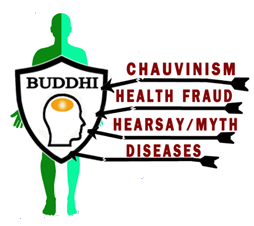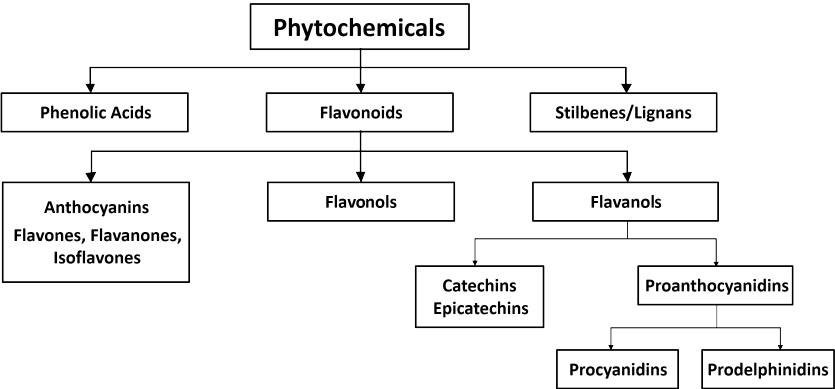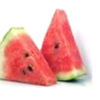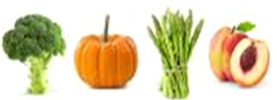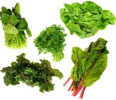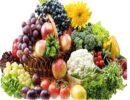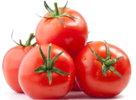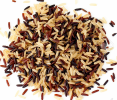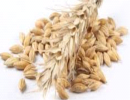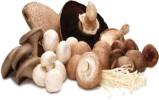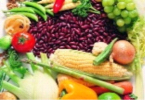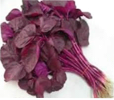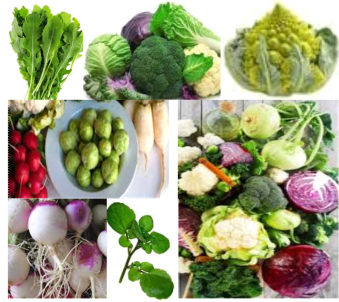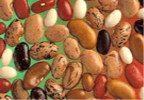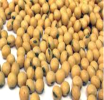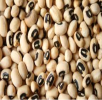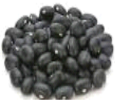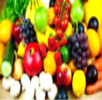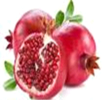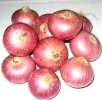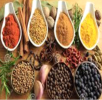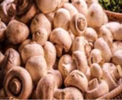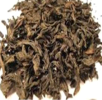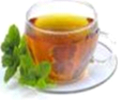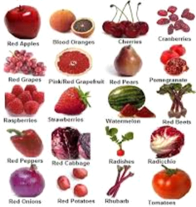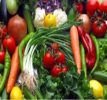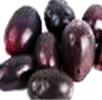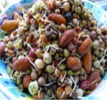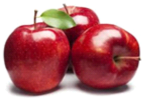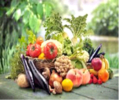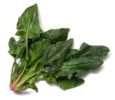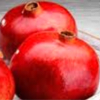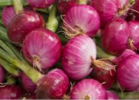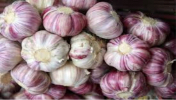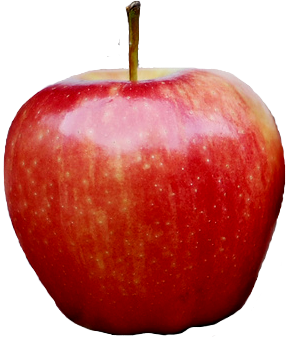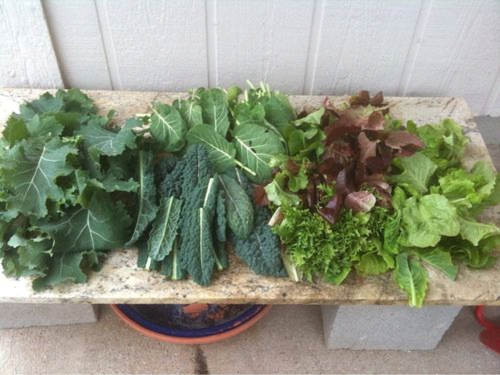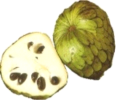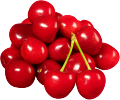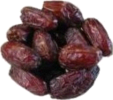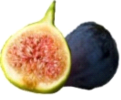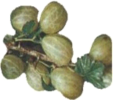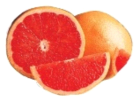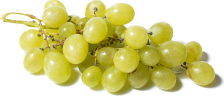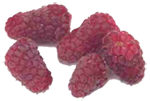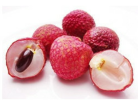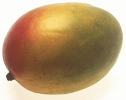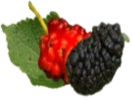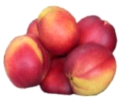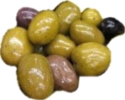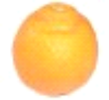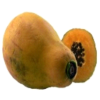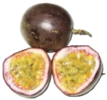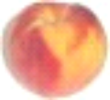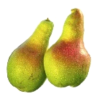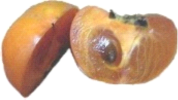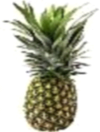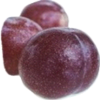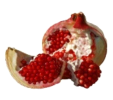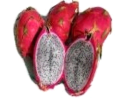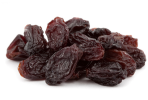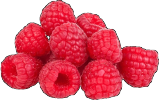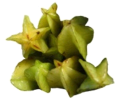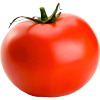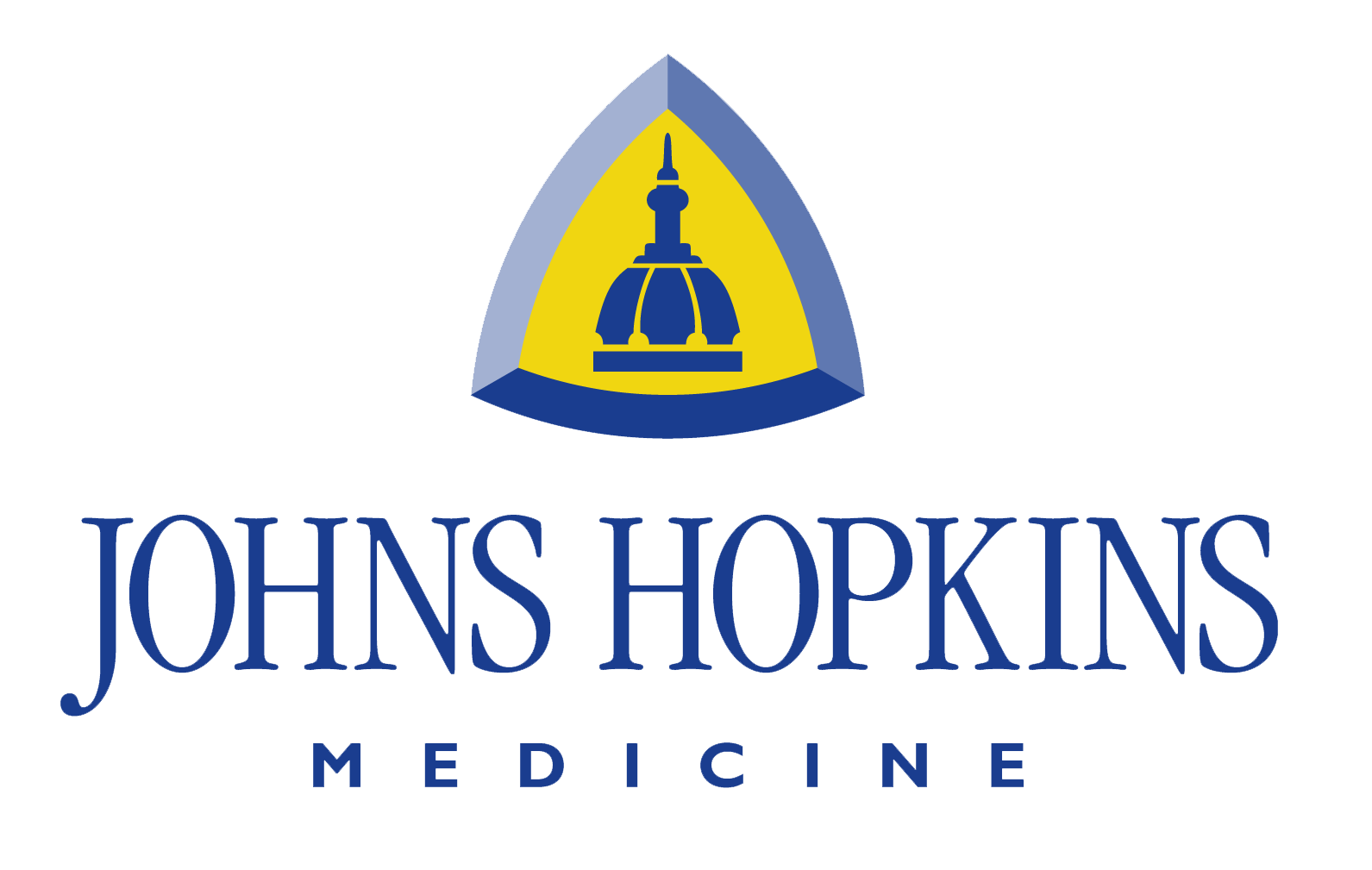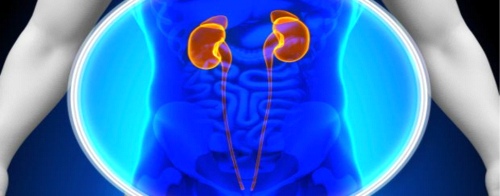"Eating the right foods and spices-and avoiding the wrong ones-could go a long way toward staving off everything from
gut ailments to cancer", say Johns Hopkins experts. They share their tips for stocking a health-promoting pantry.
The following foods contain properties that, in scientific studies, have been noted for potential disease-fighting/health-promoting
benefits:
Agave nectar, almonds, anise, apples, apricots, asparagus, avocados, barley, basil, beans, bell peppers, blueberries, brazil nuts, broccoli,
cabbage, cantaloupe, cardamom, carrots, cauliflower, cayenne, celery, cherries, chickpeas, chives, cilantro, cinnamon, cloves, coconut milk,
cranberries, cumin, edamame, eggs, fennel, flaxseeds, garlic, ginger, green tea, halibut, kale, leeks, lemons, limes, millet, shiitake
mushrooms, nutmeg, olive oil, shallots, oregano, parsley, pineapple, radishes, raspberries, brown rice, saffron, sesame seeds, spelt, Swiss
chard, thyme, walnuts.
(Source: The Cancer-Fighting Kitchen, Rebecca Katz, Mat Edelson, Celestial Arts, 2009)
*****
Gastroenterologist Gerard Mullin, author of the upcoming 700-plus page book Integrative Gastroenterology (Weil Integrative Medicine
Library) uses the following common herbs to help treat symptoms and issues related to irritable bowel syndrome:
Ginger (for dyspepsia), berberine (antibacterial properties), peppermint (gut spasms), tannins (diarrhea), ground flaxseed (constipation),
and goldenseal (antibacterial, antiparasitic, motility promotion).
Mullin also suggests the following foods as carminatives; foods that relieve gas, bloating, and generally promote gut health:
Allspice, anise seed, basil, cabbage, chamomile, caraway, cardamom, cinnamon, cloves, coriander, cumin, dill, fennel, ginger, licorice,
marjoram, nutmeg, oregano, peppermint, rosemary, sage, saffron, sarsaparilla, spearmint, thyme.
Kidney stones can form when substances in the urine-such as calcium, oxalate, and phosphorus-become highly concentrated. The body uses
food for energy and tissue repair. After the body uses what it needs, waste products in the bloodstream are carried to the kidneys and
excreted as urine. Diet is one of several factors that can promote or inhibit kidney stone formation. Certain foods may promote stone
formation in people who are susceptible, but scientists do not believe that eating any specific food causes stones to form in people who are
not susceptible. Other factors that affect kidney stone formation include genes, environment, body weight, and fluid intake.
Four major types of kidney stones can form:
Calcium stones are the most common type of kidney stone and occur in two major forms: calcium oxalate and calcium
phosphate. Calcium oxalate stones are more common. Calcium oxalate stone formation may be caused by high calcium and high oxalate excretion.
Calcium phosphate stones are caused by the combination of high urine calcium and alkaline urine, meaning the urine has a high pH.
Uric acid stones form when the urine is persistently acidic. A diet rich in purines-substances found in animal protein
such as meats, fish, and shellfish-may increase uric acid in urine. If uric acid becomes concentrated in the urine, it can settle and form
a stone by itself or along with calcium.
Struvite stones result from kidney infections. Eliminating infected stones from the urinary tract and staying infection-free can
prevent more struvite stones.
• A struvite stone may form after an infection in your urinary system.
• Cystine stones are rare. The disease that causes cystine stones runs in families.
Cystine stones result from a genetic disorder that causes cystine to leak through the kidneys and into the urine, forming
crystals that tend to accumulate into stones.
The first step in preventing kidney stones is to understand what is causing the stones to form. This information helps the health care
provider suggest diet changes to prevent future kidney stones. For example, limiting oxalate in the diet may help prevent calcium oxalate
stones but will do nothing to prevent uric acid stones. Some dietary recommendations may apply to more than one type of stone. Most notably, drinking enough fluids helps prevent all kinds of kidney stones by keeping urine diluted and flushing away materials that might form stones.
Dietary Changes to Help Prevent Kidney Stones.
People can help prevent kidney stones by making changes in fluid intake and, depending on the type of kidney stone, changes in consumption
of sodium, animal protein, calcium, and oxalate.
Drinking enough fluids each day is the best way to help prevent most types of kidney stones. Health care providers recommend that a
person drink 2 to 3 liters of fluid a day. People with cystine stones may need to drink even more. Though water is best, other fluids may
also help prevent kidney stones, such as citrus drinks.
Recommendations based on the specific type of kidney stone include the following:
Calcium Oxalate Stones
♦ reducing sodium
♦ reducing animal protein, such as meat, eggs, and fish
♦ getting enough calcium from food or taking calcium supplements with food
♦ avoiding foods high in oxalate, such as spinach, rhubarb, nuts, and wheat bran
Calcium Phosphate Stones
♦ reducing sodium
♦ reducing animal protein
♦ getting enough calcium from food or taking calcium supplements with food
Uric Acid Stones
♦ limiting animal protein
Diet and Calcium Stones
Follow these guidelines if you have calcium kidney stones:
- Eat less salt. Chinese and Mexican food, tomato juice, regular canned foods, and processed foods are usually high in salt. Look
for low-salt or unsalted products.
- Have only 2 or 3 servings a day of foods with a lot of calcium. Some of these are milk, cheese, yogurt, oysters, and tofu.
- Lemons, lemonade, and oranges are helpful to eat
- Limit how much protein you eat. Choose lean meats.
- A low-fat diet is best.
Do not take extra calcium or vitamin D. They might cause more stones to form.
Watch out for antacids that have extra calcium in them. Ask your doctor what antacids are okay for you.
• Your body still needs the normal amount of calcium you get from your daily diet.
Ask your doctor about taking vitamin C or fish oil. They may be harmful to you.
If your doctor says you have calcium oxalate stones, you may also need to limit foods that are high in oxalate. These foods include:
- Fruits: rhubarb, currants, canned fruit salad, strawberries, and Concord grapes
- Vegetables: beets, leeks, summer squash, sweet potatoes, spinach, and tomato soup
- Drinks: tea and instant coffee
- Other foods: grits, tofu, nuts, and chocolate
Diet and Uric Acid Stones
Avoid these foods if you have uric acid stones: alcohol, anchovies, sardines, oils, herring, organ meat (liver, kidney, and sweetbreads),
legumes (dried beans and peas), gravies, mushrooms, spinach, asparagus, cauliflower, consommé, and baking or brewer's yeast.
Other suggestions for your diet include:
- Do not eat more than 3 ounces of meat at each meal.
- Avoid fatty foods such as salad dressings, ice cream, fried foods, and dressings.
- Eat enough carbohydrates.
If you are losing weight, lose it slowly. Quick weight loss may cause uric acid stones form.
When to Call the Doctor
Call your doctor or nurse if you have:
- Very bad pain in your back or side that will not go away
- Blood in your urine
- Fever and chills
- Vomiting
- Urine that smells bad or looks cloudy
- A burning feeling when you urinate
Alternate Names
Renal calculi - self-care; Nephrolithiasis - self-care; Stones - kidney - self-care
- Drink lots of water: Most people suffer from kidney stones during summers. It's because you tend to sweat a lot. When you lose
water through excessive sweat, less amount of urine is produced. With less frequency of urination, minerals that cause kidney stones tend to
settle down in the kidney nephrons and the urinary tract. When you drink plenty of water, these minerals get flushed out through the urine
instead of settling down.
- Drink healthy beverages: Coconut water and fresh lemonade are excellent options to keep kidney stones at bay.
Coconut has 94% water content which is the best way to prevent kidney stones. Plus, it also contains minerals like potassium, magnesium,
manganese and potassium which are all good for maintaining kidney health. Read more health benefits of coconut water.
Lemons are high in citric acid and several studies have shown that citrate may play a role in preventing crystal formation. Experts
from the National Kidney Foundation believe that citrate concentration in the urine prevents calcium from binding with other components
that can cause stones formation. Some studies also suggest that citric acid prevents kidney stone to grow in size by preventing crystals
to bind with each other.
- Eat smartly: Oxalate is a substance that is present is several foods. It binds calcium to form calcium oxalate crystals or stones
while urine is produced by the kidneys. Oxalate is present in several foods like peanuts, seeds grains, legumes, chocolates and even
beverages like tea. Vegetables like spinach, beetroots and sweet potatoes contain more amount of oxalates. Many people avoid eating
foods containing calcium and oxalate completely. That's not a right approach. If you want to have them, have in moderate quantity. The
smartest way to avoid formation of oxalate crystals is to consume calcium and oxalate-rich foods together. When you do that, oxalate and
calcium will bind in the stomach itself before reaching the kidneys. This way you will be less likely to suffer from kidney stones.
- Eat more dairy foods every day: Research shows that having 3-4 servings of low-fat or non-fat milk/yogurt daily can actually
prevent the formation of kidney stones. The calcium from dairy foods binds with oxalate from other foods you eat.
Here are 9 reasons curd is great for your health!
- Limit the intake of seafood: Seafood, meat and other proteinaceous foods are rich in compounds called purines. High purine levels
increase the production of uric acid leading to uric acid stones.
- Reduce the intake of salt: Keep a watch on your salt intake. Salt contains sodium. When your diet is high in sodium, it causes
over-excretion of calcium into urine by the kidneys. Calcium can bind to oxalate and lead to the formation of kidney stones. Also read
how too much of salt can cause obesity
and inflammation in adolescents.
- Maintain healthy weight: Obesity is linked to a lot of diseases and kidney stone is also one of them. You are more likely to suffer
from kidney stones if you are overweight. When you decide to lose weight, do it the right way with balanced diet and regular exercise.
Don't fall for fad diets and extreme weight loss practices that deprive you of necessary nutrients. Here's our
mega-guide for losing
weight the right way.
- Know your risk: Kidney stones can be caused by intake of some drugs like protease inhibitors,
antibiotics and diuretics. Especially if you have had kidney stones in the
past, then you might be at a risk of developing kidney stones again. Talk to your doctor about it and understand if your risk of
developing kidney stones is high.
Read more about
how more number of Indian children are affected by kidney stones (Expert speak)
- Don't hold your pee for too long: Holding urine in the bladder for too long is one of the reasons that can cause kidney stones.
When you first feel the urge to urinate, just go and do it. Holding it for too long can cause toxins and minerals to accumulate and
crystallize over the time to form stones. Also, you should not drink less water in order to avoid frequent urination. This can not only
add on to the problem of kidney stones but also increase your risk of developing other kidney diseases
and urinary tract infections.
- Avoid alcohol and cigarettes: Alcohol and smoking does not directly cause kidney stones. But it can disturb hormonal control that
influences the kidney function. Also, if you have had kidney stones in the past, it can increase your risk of recurring stones.
References:
• National Kidney Foundation
• National Kidney and Urologic Diseases Information Clearinghouse (NKUDIC)
Manage diabetes, high blood pressure and heart disease: In most of the cases, kidney disease is a secondary illness
that results from a primary disease or condition such as diabetes, heart diseases or high blood pressure. Therefore, controlling sugar
levels, cholesterol and blood pressure by following a healthy diet, exercise regimen and medication guidelines is essential to keep
kidney disease at bay.
Avoid alcohol and smoking: Excess intake of alcohol can disturb the electrolyte balance of the body and hormonal
control that influences the kidney function. Smoking is not directly related to kidney problems but it reduces kidney function significantly.
It also has an adverse effect on heart health which can further worsen kidney problems.
Exercise daily: Researchers believe that obesity is closely linked to kidney related problems. Being overweight
doubles the chances of developing kidney problems. Exercising, eating healthy and controlling portion size can surely help you to lose
extra weight and enhance kidney health. Besides, you will always feel fresh and active. Here's more about
how obesity and kidney disease are linked.
Avoid self medication: All the medicines you take have to pass through the kidney for filtration. Increased dosage or
taking medicines that you are not aware of can increase the toxin load on your kidneys. That's why you should always follow dosage
recommendations and avoid self medication. Read more about how drugs affect the kidneys.
Think before you take supplements and herbal medicine: If you're on vitamin supplements or if you're taking some
herbal supplements, you should reconsider your dosage requirement. Excessive amount of vitamins and certain plant extracts are linked to
kidney damage. You should talk to your doctor about the risk of kidney disease before taking them.
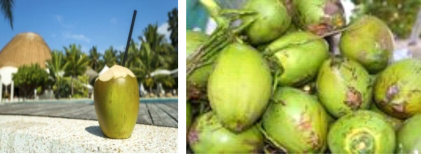
coconut fruits stacked for making juice water (Stock Photographs)
A refreshing drink found especially in coastal areas, coconut water has a range of health benefits. One among many of its benefits
is that it reduces the risk of kidney stones.
More common in men, kidney stones are made of mineral and acid salts and often painful. If they are small, they can be made to pass
with your urine with some medication and lots of water. However, if they are big a surgery might be required. In order to prevent the
risk of kidney stones, it is important to stay hydrated and drink at least 8-10 glasses of water each day.
A high calorie diet, too
much Vitamin C can also lead to kidney stones. So, be careful.
Coconut water too can be an excellent thing to introduce in your diet if you want to keep kidney stones at bay. It has diuretic
properties which promote the production of urine and helps flush out excessive calcium, phosphate and uric acid from your kidneys.
(Read: Coconut water: More health benefits than you know!)
Even people who have kidney stones are advised coconut water since it helps break them down making it easier for them to pass through
the urine.
During exercise or travelling long distances in the sun, a lot of people sweat a lot and lose some minerals from their body. If they
don't hydrate themselves well, it could lead to formation of kidney stones. Coconut water has minerals like potassium, magnesium,
manganese and potassium and is 94% water making it an excellent option for such people.
Cranberries
Cranberries can help your kidneys fend off infection, according to David B. Jacoby, co-author of "Encyclopedia Of Family Health."
Cranberry juice prevents bacteria from clinging to the membranes that line the urinary tract. Cranberries also contain oxalates, which
can combine with calcium to form kidney stones, leading some experts to warn patients with kidney stones to avoid cranberries. However,
some research has shown they have the opposite effect and may help dissolve kidney stones. A study published in the November 2003 issue
of the journal "BJU International" found that participants who consumed cranberry juice showed decreased oxalate and phosphate excretion
and lower concentrations of calcium oxalate in their urine compared to those who drank water. Researchers concluded that cranberry juice
may offer protection against kidney stone formation.
Cucumbers
Cucumbers are a high-water-content vegetable that offer beneficial properties for kidney health. Cucumbers help prevent excess uric
acid, which can lead to kidney stone formation. Their high potassium content makes them a good food for promoting healthy blood pressure,
according to herbalist Jude C. Todd, author of the book "Jude's Herbal Home Remedies: Natural Health, Beauty & Home Care Secrets." The
kidneys do this by maintaining proper levels of potassium and other minerals that help the body retain or release water.
Fiber
A high-fiber diet may also discourage kidney stone formation, according to the University of Maryland Medical Center. Phytates in
fiber prevent calcium oxalate and calcium phosphate from crystallizing. A laboratory animal study published in the January 2007 issue of
the journal "Frontiers in Bioscience" found that phytate-containing diets resulted in no calcium deposits in the kidneys, while animals
that ate diets without phosphate developed calcium deposits in kidney-filtering tubules and blood vessels. Researchers concluded that
phytates may inhibit calcium crystal formation. Further research is needed to confirm these preliminary results.
Parsley
Parsley offers diuretic benefits and may promote passing of kidney stones or prevent stones from forming, according to New York
University Langone Medical Center. The compounds apiol and myristicin in parsley increase the production of urine, helping to flush out
stones and crystals. Bacteria are also swept out of the kidney and urinary tract, making infections less likely. Researchers of a
laboratory animal study published in the Winter 2012 issue of "Urology Journal" found that parsley extract significantly decreased
calcium oxalate deposits, making it therapeutic for preventing kidney stones.
